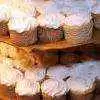-
Welcome to Celiac.com!
You have found your celiac tribe! Join us and ask questions in our forum, share your story, and connect with others.
-
Celiac.com Sponsor (A1):
Celiac.com Sponsor (A1-M):
-
Get Celiac.com Updates:Support Our Content
Key West Recommendations
-
Get Celiac.com Updates:Support Celiac.com:
-
Celiac.com Sponsor (A17):
Celiac.com Sponsor (A17):
Celiac.com Sponsors (A17-M):
-
Recent Activity
-
- Wheatwacked replied to Churro's topic in Celiac Disease Pre-Diagnosis, Testing & Symptoms16
Celiac disease symptoms
Non-Celiac Gluten Sensitivity (NCGS) can be associated with low ferritin and iron deficiency. Once Celiac Disease (1% of the population affected) has been ruled out by tests the next step is to check for Non Celiac Gluten Sensitivity (10% of the population affected) by eliminating gluten for a trial period, then re-introduce Gluten Challange. Have... -
- Churro replied to Churro's topic in Celiac Disease Pre-Diagnosis, Testing & Symptoms16
Celiac disease symptoms
Thanks for your input. -
- trents replied to Churro's topic in Celiac Disease Pre-Diagnosis, Testing & Symptoms16
Celiac disease symptoms
If you have hemorrhoids 1x weekly I don't see how you have time to heal from one episode before you experience another one, unless each one is a very minor event. Have you consulted a physician about your hemorrhoid issue? It's not normal to be having an episode every week unless it is really one episode that is not completely healing between weekly... -
- Churro replied to Churro's topic in Celiac Disease Pre-Diagnosis, Testing & Symptoms16
Celiac disease symptoms
No I haven't had one since 2021. I rarely have more than 1 per week. -
- trents replied to Churro's topic in Celiac Disease Pre-Diagnosis, Testing & Symptoms16
Celiac disease symptoms
Sorry, I see that now as I reread your original post. You say you have hemorrhoids "only once a week" now. When I develop hemorrhoids, which is once every few years now, it generally takes 3-4 days for healing to take place. So, it doesn't seem like you could have much relief time between episodes if you have them weekly. Have you had a lower GI scoping done...
-



Recommended Posts
Archived
This topic is now archived and is closed to further replies.